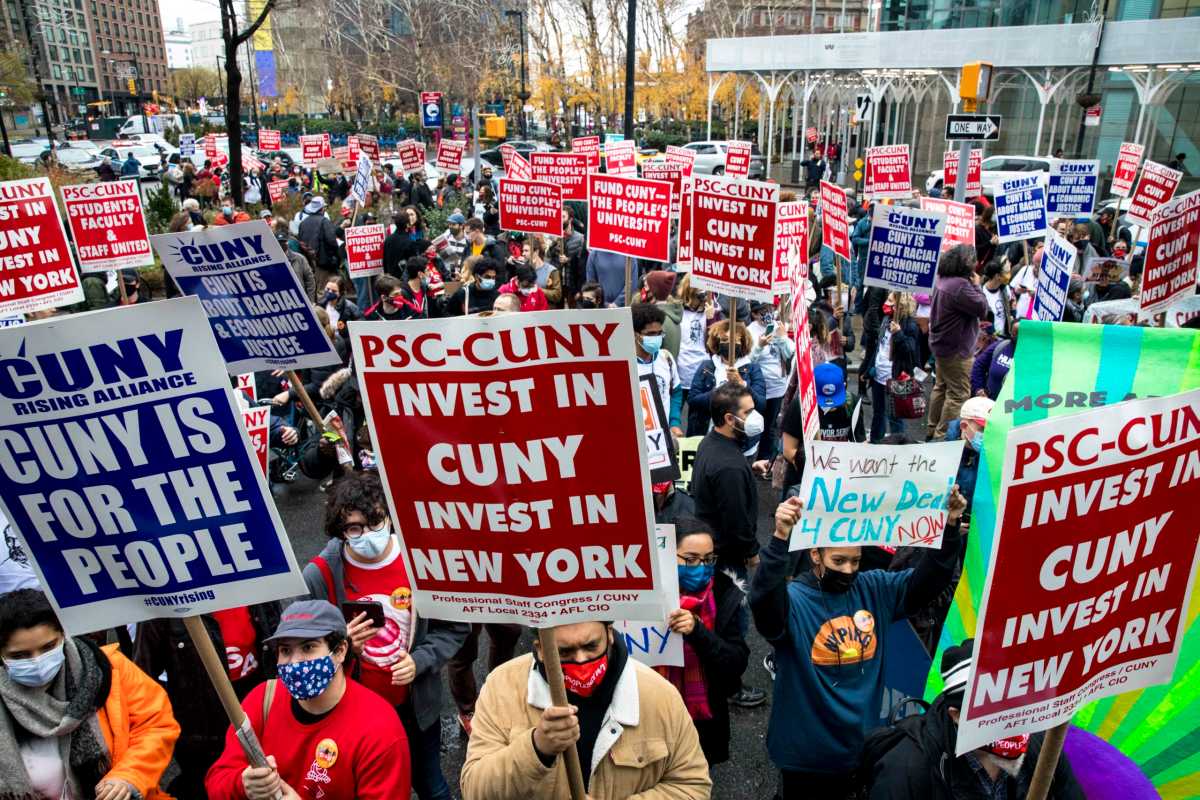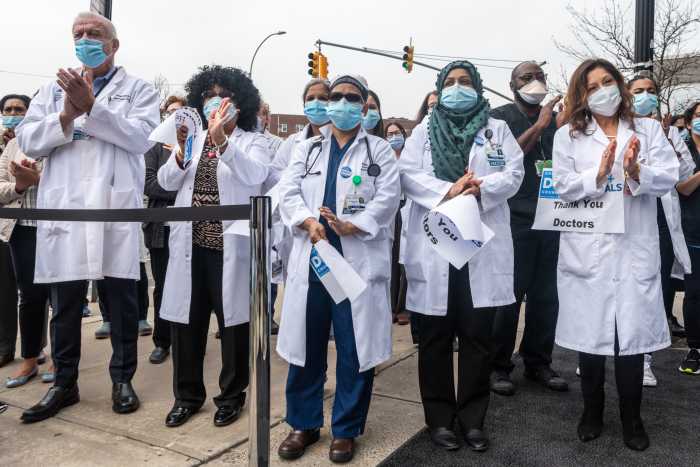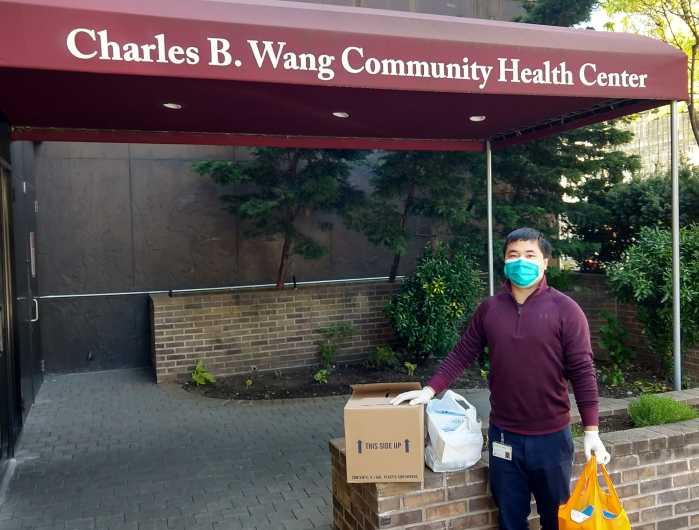Following Gov. Kathy Hochul’s State of the State address on Wednesday, Jan. 5, City University of New York (CUNY) students commended the governor for her commitment to public higher education.
CUNY leaders and advocates from Queens have been pushing for the state Legislature to fully fund its recent budget request, which asks for an increase of $313 million. The budget increase would hire 1,075 additional full-time faculty; add new mental health counselors and advisers; and freeze tuition for CUNY students.
According to Professional Staff Congress (PSC), the labor union representing CUNY teachers, funding for CUNY schools has dropped by 38% since 1990 and 18% since 2008. The dip in funding has resulted in tuition hikes, reduced services and a large reliance on adjunct professors.
Hochul announced during her State of the State address that she plans to restore the Tuition Assistance Program (TAP) and support internships for SUNY and CUNY students.
“We applaud Gov. Hochul for championing public higher education as an engine of economic mobility, and for identifying key investments in areas like child care and TAP reform,” said James Davis, president of the Professional Staff Congress/CUNY. “We look forward to working with the governor to ensure that the executive budget meets the needs of CUNY communities by investing in new full-time faculty, academic advisers, mental health counselors and infrastructure, setting the stage for a New Deal for CUNY.”
Last month, nearly a thousand advocates marched from LaGuardia Community College to Court Square Park. Students and faculty were joined by Queens lawmakers, as well as New York State Attorney General Letitia James, NYC Comptroller Brad Lander and other city officials.
“As a proud CUNY graduate, I know firsthand the power of a CUNY education and the opportunity it provides to so many New Yorkers who might otherwise not have access to higher education,” James said. “But there would be no CUNY without the dedicated professors and faculty behind it, and we must give them and our students the support they need to keep this system running.”
James said that CUNY’s request should be met to ensure adequate education for its students and that these investments are crucial to the continued success of New York City and the entire state.
The funding request, known as the New Deal for CUNY, was introduced in the state Legislature this past spring. The bill would make CUNY free for all students, eliminating tuition which is $6,930 for in-state students attending a four-year college, according to the CUNY website.
LaGuardia Community College President Kenneth Adams said that new investments would allow them to bring on more full-time staff, expand mental health services and freeze tuition costs.
“New investments would allow us to do an even better job serving Queens residents — especially those upended by the COVID-19 pandemic — seeking to earn a professional certificate or college degree so they may pursue a career with family-sustaining wages,” Adams said. “More resources will enable us to make better tomorrows for our students, Queens and beyond.”
Assembly member Jessica González-Rojas said that as a former faculty member at City College, she knows first-hand how uplifting CUNY education can be for students in deep poverty.
“With new leadership in New York, it is time to end the austerity that has limited the potential of our great state, to end the tuition hikes and the disinvestment and exploitation of faculty and staff,” González-Rojas said. “We must pass a New Deal for CUNY, which prioritizes our students and their wellbeing and provides true worker and economic justice. Let’s make CUNY free again.”
State Senator Toby Ann Stavisky, chair of the Senate Higher Education Committee, said that CUNY has been a “vital force” in New York for nearly 175 years and it must be adequately funded.
“Funding has declined nearly 20% since the Great Recession, and double that since the early 1990s,” Stavisky said. “Students suffer as a result, with less opportunities to connect with faculty, fewer classes and longer wait times for counseling and advisement services. We need a New Deal for CUNY to remedy this decline in funding, and make this great institution all that it can be. We made great strides in this year’s budget by closing the TAP/GAP. Let us continue to close the gap.”


































